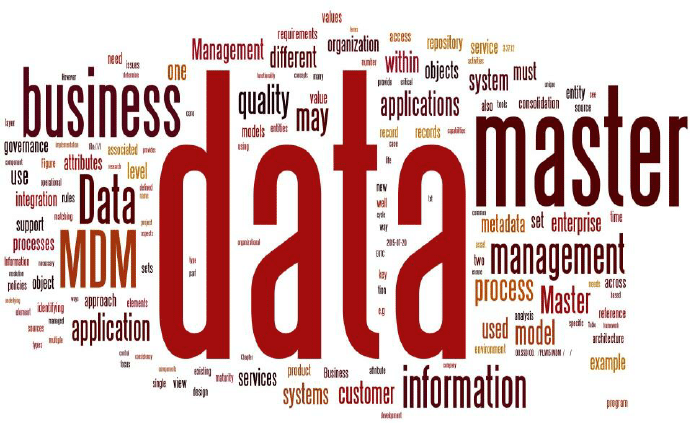Table of Contents
- Introduction to Cloud Data Management
- Why Effective Cloud Data Management is Crucial
- Critical Strategies for Cloud Data Management
- Tools and Technologies to Aid Cloud Data Management
- Real-Life Examples of Successful Cloud Data Management
- The Future of Cloud Data Management
- Conclusion
Introduction to Cloud Data Management
Cloud data management is essential to modern data handling techniques, ensuring data is efficiently stored, backed up, and secure across cloud platforms. In today’s digital age, businesses increasingly rely on robust backup in the cloud services to safeguard their data. These services enhance data security and ensure seamless access and recovery when needed. This growing reliance on cloud-based solutions necessitates a comprehensive approach to managing and protecting digital assets across various cloud environments. Effective cloud data management becomes even more critical as organizations generate vast amounts of data. It helps organize, store, and protect data, allowing businesses to operate smoothly and make data-driven decisions with confidence. The dynamic nature of data environments requires that organizations remain agile and proactive in managing data, ensuring they can effectively respond to anticipated and unforeseen challenges.
Why Effective Cloud Data Management is Crucial
Effective cloud data management is fundamental to maintaining data integrity and accessibility. It minimizes risks such as data loss and breaches while ensuring compliance with various regulations. According to a Forbes report, businesses strategically managing their cloud data can see improved efficiency and cost savings. With a solid cloud data management strategy, companies can streamline their operations, reduce redundant resources, and better allocate their IT budgets.
Furthermore, an effective cloud data management strategy ensures that data is readily available for analysis and decision-making. This accessibility can improve a business’s agility, allowing it to respond more quickly to market changes and customer demands. Compliance is another critical aspect; regulations such as GDPR and CCPA mandate stringent data handling and storage controls. Proper cloud data management helps organizations adhere to these rules, avoiding costly fines and reputational damage.
Critical Strategies for Cloud Data Management
A solid backup and recovery plan is fundamental for managing cloud data efficiently. This guarantees that data can be promptly restored during loss or corruption. Considerate planning goes a long way toward reducing downtime and preserving company continuity.
- Implement a robust backup and recovery plan to restore data quickly during loss or corruption.
- Data encryption should be used in transit and at rest to enhance security and protect sensitive information.
- Regularly audit and update data management policies to meet evolving business needs and regulatory requirements.
- Leverage cloud-native tools and services designed to work seamlessly with cloud platforms, improving efficiency and reducing operational complexity.
Another crucial tactic is encryption, which improves data security by rendering it unreadable by unwanted parties. At-rest and in-transit encryption are essential parts of a complete security system. The organization’s procedures are updated with the most recent legal standards and industry best practices through routine audits and revisions to the data management policies. Lastly, the effectiveness of data management procedures can be significantly increased by utilizing cloud-native tools and services. The seamless integration of these technologies with cloud platforms reduces operational complexity and frees up IT professionals to work on more strategic projects.
Tools and Technologies to Aid Cloud Data Management

Various tools and technologies can facilitate effective cloud data management. These include cloud storage solutions, data governance frameworks, and AI-driven analytics tools that offer insights into data usage and security vulnerabilities. Utilizing these tools can significantly enhance an organization’s data management capabilities. Cloud storage solutions provide scalable and cost-effective options for storing data, while data governance frameworks ensure that data is managed according to industry standards and regulatory requirements. AI-driven analytics tools can offer valuable insights into data usage patterns and potential security vulnerabilities. These tools can help organizations identify inefficiencies and areas for improvement, allowing for more informed decision-making. By integrating these tools into their data management strategies, organizations can achieve greater efficiency and security, ultimately driving business growth and success.
Real-Life Examples of Successful Cloud Data Management
Several companies have successfully implemented cloud data management strategies, achieving notable improvements in data security and accessibility. For instance, e-commerce giant Amazon has leveraged cloud data management tools to optimize its vast data operations, ensuring reliability and efficiency. By using advanced analytics and AI-driven tools, Amazon can easily manage large volumes of data, resulting in improved customer experiences and operational efficiencies. Another example is Netflix, which relies heavily on cloud-based data management to deliver seamless streaming services to millions of users worldwide. The company’s data management strategies ensure content is delivered quickly and efficiently, even during peak usage times.
The Future of Cloud Data Management
The outlook for cloud data management appears optimistic, as new technologies like machine learning and blockchain are set to have important positions. These advancements will provide enhanced, reliable, and streamlined strategies for overseeing cloud data, reshaping how companies manage their online resources. Machine learning can streamline data management activities, minimize human mistakes, and provide predictive analyses; meanwhile, blockchain technology can boost data protection and reliability. As these technologies progress, businesses must proactively incorporate them into their data management strategies to remain competitive. This proactive method will guarantee their competitiveness in a growing digital marketplace. The continual evolution and acceptance of these technologies will influence the upcoming environment of cloud data management, presenting fresh possibilities and obstacles for global businesses.
Conclusion
To sum up, efficient administration of cloud data is essential for any firm seeking to maximize its data security, accessibility, and storage. Businesses can guarantee that data is well-managed and safe by implementing best practices and utilizing cutting-edge solutions, opening the door for future expansion and innovation. A thorough cloud data management plan improves operational effectiveness and decision-making skills while shielding the company from possible data breaches and losses. Businesses must continue to be proactive and flexible in their approach to cloud data management as the digital world changes. Organizations can improve their data management practices and guarantee long-term success and agility in a continuously changing environment by staying current with evolving trends and technology.

